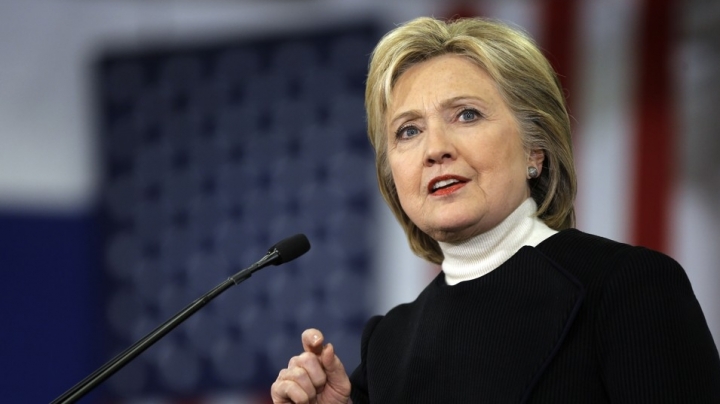Clinton surpasses Trump in Popular Vote tally, loses in Electoral College

Democratic presidential candidate Hillary Clinton finds herself on the wrong end of an electoral split, moving ahead in the popular vote but losing to President-elect Donald Trump in the Electoral College, according to the latest numbers emerging Wednesday, reports NPR.
As of 8:10 a.m. ET, Clinton had amassed 59,163,675 votes nationally, to Trump's 59,027,971 — a margin of 135,704 that puts Clinton on track to become the fifth U.S. presidential candidate to win the popular vote but lose the election.
"Trump crossed the 270 electoral vote threshold at 2:31 a.m. ET with a victory in Wisconsin," NPR's Carrie Johnson reports.
If the final tally follows the current trend, the result would mark the second time in the past 16 years that a Democrat has lost a national election while winning the popular vote. In 2000, Al Gore narrowly won the popular vote against George Bush, but he lost the presidency by five electoral votes in a hotly contested result.
Because of how the Electoral College works, it's theoretically possible for a candidate to win the White House with less than 30 percent of the popular vote, as NPR's Danielle Kurtzleben recently reported.
Discussing the 2000 election, Danielle noted that despite the split outcome, that race "also has the electoral-vote margin that most closely reflects the popular-vote margin."
Danielle added, "In that sense, one could call it one of the 'fairest' elections in modern politics."
Before the 2000 presidential race, the popular and electoral vote had been split three times — all in the 1800s. Here's the full list that Hillary Clinton is now poised to join:
- Andrew Jackson in 1824 (lost to John Quincy Adams)
- Samuel Tilden in 1876 (lost to Rutherford B. Hayes)
- Grover Cleveland in 1888 (lost to Benjamin Harrison)
- Al Gore in 2000 (lost to George W. Bush)
The last time the electoral college system came up for serious debate was in the late 1960s. From the House of Representatives archives:
"The closest Congress has come to amending the Electoral College since 1804 was during the 91st Congress (1969–1971). H.J. Res. 681 proposed the direct election of a President and Vice President, requiring a run off when no candidate received more than 40 percent of the vote. The resolution passed the House in 1969, but failed to pass the Senate."
- Trump victory in US elections shocks world
- This is what a Donald Trump presidency would look like
- Americans google 'how do I emigrate' as searches for 'end of the world' are rising
- James Pettit: US will support Moldova no matter the election results
- World leaders congratulate Donald Trump on his victory
- Madonna eludes oral sex pledge to Clinton voters